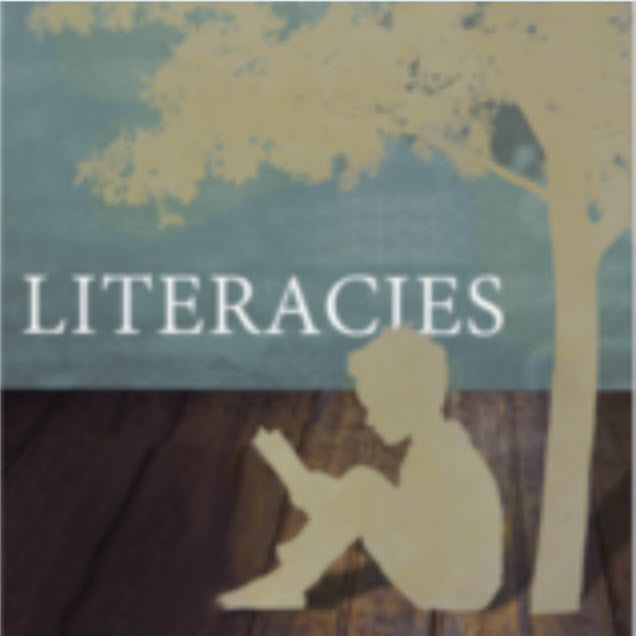Select a link below to learn more about the courses taught by LDL program faculty. Refer to our Annual Course schedule to get an idea of when these may be offered next. Courses marked with * meet the Technology Endorsement Requirements
To see courses taught by other faculty, refer to courses.illinois.edu or the University’s registration system.
- General Format of LDL Courses
- LDL Course Descriptions & Links to Learning Materials
- EPOL 481 / EPS 431: New Learning*
- EPSY 408: Learning & Human Development with Educational Technologies*
- EPOL 486 / SPED 413: New Media & Learner Differences*
- EPOL 479: Machine and Human Learning
- EPOL 534 / EPS 535: Assessment for Learning*
- EPSY 559 LDL: Advanced Learning Technology (formerly EPSY 556)
- EPSY 560 LDL: Technology and Educational Change* (formerly HRD 472)
- EPOL 580 / EPS 506: Ubiquitous Learning*
- EPOL 581 / EPS 532: Knowledge, Learning & Pedagogy
- EPOL 582 / EPS 554: New Media and Literacies*
- EPOL 583 / HRD 572 LDL: e-Learning Ecologies*
- ERAM 557: Meaning Patterns (Interpretative Methods Course)
- Degree Requirement Links
General Format of LDL Courses
Each course taught by LDL program faculty involves weekly synchronous sessions, weekly comments on instructor “updates,” weekly updates by participants on nominated topics, and two peer reviewed projects—further details in course syllabi.
LDL Course Descriptions & Links to Learning Materials
EPOL 481 / EPS 431: New Learning*

Education is in a state of flux – transitioning from traditional architectures and practices to new ecologies of teaching and learning influenced by the tremendous social and technological changes of our times. What changes are afoot today in workplaces, civic life and everyday community life? What are their implications for education? What are the possible impacts of contemporary social transformations on teaching and learning – including in the areas of technology, media, globalization, diversity, changing forms of work in the “knowledge society”, and, in these contexts, changing learner needs and sensibilities? This course explores three pedagogical paradigms: “didactic”, “authentic” and “transformative” learning. It takes an historical perspective in order to define the contemporary dimensions of what we term “new learning”. It prepares participants to make purposeful choices and link particular theories/instructional approaches to individual and group learning goals.
- CGScholar Learning Module: New Learning
- Textbook (available as an e-book in the UofI library): New Learning: Elements of a Science of Education, Cambridge University Press, 2008 (2nd edition, 2012)
- College of Education link: EPOL 481/ EPOL 431: New Learning*
EPSY 408: Learning & Human Development with Educational Technologies*

Sets out to provide an understanding of theories of learning and development and how these theories relate to educational technology. It has two components. The first is theoretical, in which we attempt to develop an overall frame of reference, locating approaches to the psychology of learning in terms of large paradigm shifts, from ‘behaviorism’ to ‘brain developmentalism’ to ‘social cognitivism’. The second component is practical, in which we will use these theoretical concepts to ‘parse’ a technology-mediated learning environment for its underlying presuppositions.
- Scholar Learning Module: Learning and Human Development with Technologies
- Textbook (available as an e-book in the UofI library): New Learning: Elements of a Science of Education, Cambridge University Press, 2008 (2nd edition, 2012)
- College of Education link: EPSY 408: Learning and Human Development with Educational Technologies*
EPOL 486 / SPED 413: New Media & Learner Differences*

An investigation of the dimensions of learner diversity: material (class, locale), corporeal (age, race, sex and sexuality, and physical and mental characteristics) and symbolic (culture, language, gender, family, affinity and persona). Examines social-cultural theories of difference, as well as considering alternative responses to these differences in educational settings – ranging from broad, institutional responses to specific pedagogical responses within classes of students. The course also focuses on the application of learning technologies and new media to meet the needs of diverse populations of learners. Its main practical question is, how do we use educational technologies to create learning environments in which learning experiences can be customized and calibrated to meet the precise needs of particular learners? Topics include: universal design for learning, differentiated instruction systems, and adaptive and personalized learning environments.
- CGScholar Learning Module: Learner Differences and Digital Media
- Textbook (available as an e-book in the UofI library): New Learning: Elements of a Science of Education, Cambridge University Press, 2008 (2nd edition, 2012).
- College of Education link: EPOL 486 / SPED 413: New Media and Learner Differences*
EPOL 479: Machine and Human Learning

This course examines the differences between machine and human learning and the ways in which machines can complement human learning. It examines technical definitions of supervised and unsupervised machine learning, as well as broader views of mechanical intelligence able to replicate or exceed human intelligence. The course will also explore practical applications of learning analytics and artificial intelligence in learning management systems and other educational tools and critically interrogate the applications of AI in education.
- CGScholar Learning Module: Machine and Human Learning
- Textbook:
- College of Education link: EPOL 479: Machine Human Learning
EPOL 534 / EPS 535: Assessment for Learning*

For several decades now, assessment has become an increasingly pressing educational priority. Teacher and school accountability systems have come to be based on analysis of large-scale, standardized summative assessments. As a consequence, assessment now dominates most conversations about reform, particularly as a measure of teacher and school accountability for learner performance. Behind the often heated and at times ideologically gridlocked debate is a genuine challenge to address gaps in achievement between different demographically identifiable groups of students. There is an urgent need to lift whole communities and cohorts of students out of cycles of underachievement. For better or for worse, testing and public reporting of achievement is seen to be one of the few tools capable of clearly informing public policy makers and communities alike about how their resources are being used to expand the life opportunities. This course is an overview of current debates about testing, and analyses the strengths and weaknesses of a variety of approaches to assessment. The course also focuses on the use of assessment technologies in learning. It will explore recent advances in computer adaptive and diagnostic testing, the use of natural language processing technologies in assessments, and embedded formative assessments in digital and online curricula. Other topics include the use of data mining and learning analytics in learning management systems and educational technology platforms. Participants will be required to consider issues of data access, privacy and the challenges raised by ‘big data’ including data persistency and student profiling. The course also addresses processes of educational evaluation.
- CGScholar Learning Module: Assessment for Learning
- Textbook (available as an e-book in the UofI library): New Learning: Elements of a Science of Education, Cambridge University Press, 2008 (2nd edition, 2012)
- College of Education link: EPOL 534 / EPS 535: Assessment for Learning*
EPSY 559 LDL: Advanced Learning Technology (formerly EPSY 556)

In this course participants identify and justify the implementation of advanced learning technologies in the overall environment of learning. They investigate the ways in which advanced technologies influence the design process and how the design process may be enhanced. Areas addressed include: learning management systems, intelligent tutors, computer adaptive testing, gamification, simulations, learning in and through social media and peer interaction, universal design for learning, differentiated instruction systems, big data and learning analytics, attention monitoring, and affect-aware systems. Participants will explore the processes for selection and implementation of suitable technologies, the design of electronic learning resources, design and application of digital media in teaching and learning, familiarization with web usability and accessibility, and critical analysis of the benefits of technologies in education.
- CGScholar Learning Module: Advanced Instructional Technologies
- Optional Textbook: e-Learning Ecologies, Routledge, 2017.
EPSY 560 LDL: Technology and Educational Change* (formerly HRD 472)

Today’s wave of educational technologies foreshadow what may be a second great education revolution, after the rise of mass-institutional education in the nineteenth century. This has the potential to transform the characteristic communication artifacts of classrooms, teacher lecture, classroom discourse and textbooks. This course explores the possibilities for educational technologies to influence educational change. However, with a critical eye, we also raise the concerns – we can use digital media to prolong the life of old ways of learning, for instance, where the video-lecturing teacher, the monovocal e-textbook or the bullet-pointed PowerPoint presentation transmit facts and concepts. How can we use the affordances of networked digital media to do something different? Can we imagine learning where the knowledge that learners bring to the table is valued, where learners’ knowledge repertoires are extended as they actively make new knowledge, and which build collaborative knowledge cultures?
- CGScholar Learning Module: The Digital Learner
- Optional Textbook: e-Learning Ecologies, Routledge, 2017.
- College of Education link: EPSY 560: Technology and Educational Change* (formerly HRD 472)
EPOL 580 / EPS 506: Ubiquitous Learning*

This course explores the dynamics of learning using mobile computing devices, broadly defined to range from mobile phones, tablets and laptops to interesting new possibilities raised by emerging technologies such as wearable devices and a potentially pervasive “internet of things”. Our journey will take us through museums, galleries and parks – real and virtual. We will visit new media and gaming spaces in which either incidental or explicit learning is taking place. We will look at sites of informal as well as formal learning – extraordinary classrooms offering blended learning opportunities, as well as new forms and modes of out-of-school and self-directed learning.
- GScholar Learning Module: Ubiquitous Learning
- Introductory Reading: Ubiquitous Learning, University of Illinois Press, 2009
- College of Education link: EPOL 580 / EPS 506: Ubiquitous Learning*
EPOL 581 / EPS 532: Knowledge, Learning & Pedagogy

Investigates a variety of pedagogical paradigms, including didactic, authentic, functional and critical pedagogies. Develops the concept of a pedagogical repertoire, as a means to interpret the ways in which learners engage in a variety of “knowledge processes” or task types. The course focuses for its examples on approaches literacy and academic literacy teaching and learning, but participants can address parallel examples from other discipline areas and across all levels of education including school, higher education, and workplace learning. As a counterpoint, the course also reflects on the practicalities of learning knowledge-making in informal as well as consciously designed learning environments.
- GScholar Learning Module: Literacy Teaching and Learning: Aims, Approaches and Pedagogies
- Textbook (available as an e-book in the UofI library): Literacies, Cambridge University Press 2012 (2nd edition, 2016), Chapters 1-8.
- College of Education link: EPOL 581 / EPS 532: Knowledge, Learning and Pedagogy
EPOL 582 / EPS 554: New Media and Literacies*

This course Introduces the ‘Multiliteracies’ theory of literacy learning, recognizing that contemporary communications are increasingly multimodal, connecting written text with oral, visual, gestural, tactile and spatial modes. The course will explore current trends in literacy instruction, not only in language arts or composition classes, but academic literacies across all curriculum areas and all levels of learning. This reflects an expansive view of literacy in which reading and writing includes media objects such as video, datasets, and infographics.
- Follow-on Learning Module: Multimodal Literacies: Communication and Learning in the Era of Digital Media
- Textbook (available as an e-book in the UofI library): Literacies, Cambridge University Press 2012 (2nd edition, 2016), Chapters 9-16.
- College of Education link: EPOL 582 / EPS 554: New Media and Literacies*
EPOL 583 / HRD 572 LDL: e-Learning Ecologies*

An examination of emerging environments of e-learning, some setting out to emulate the heritage social relationships and discourses of the classroom, others attempting to create new forms of learning. Aims to push the imaginative boundaries of what might be possible in e-learning environments. Explores the ways in which assessments can be constructed and implemented which are integral to the learning process, with the assistance of today’s new media, ‘big data’ and other information technologies.
- CGScholar Learning Module: e-Learning Ecologies
- Optional Textbook: e-Learning Ecologies, Routledge, 2017.
- College of Education link: EPOL 583 / HRD 572: e-Learning Ecologies*
ERAM 557: Meaning Patterns (Interpretative Methods Course)
An Introduction to Semiotics and the Interpretation of Meanings in Education and the Social Sciences

This course addresses the ways in which knowledge is represented, with special reference to the knowledge representations of teachers and learners. Its interdisciplinary bases are functional linguistics, semiotics, philosophy, history of ideas, media/communication studies, and ontology in computer science. The focal point of the course is the five questions about meaning posed by Cope and Kalantzis in their transpositional grammar: “what is this about?” (reference); “who or what is doing this?” (agency); “what holds this together?” (structure); “how does this fit with its surroundings?” (context); and “what is this for?” (interest). Along these lines of inquiry, a transpositional grammar addresses language, image, embodied action, object and space. “Transposition” refers to the movement across these various forms of meaning, intensified in the era of pervasively multimodal, digitally-mediated communications. Applied to education, not only does this provide a valuable heuristic to reframe literacy teaching and learning (the original impulse for the development of this grammar). It also offers an integrated account of meaning-to-learn across all subject areas, including pedagogical content knowledge and learner knowledge representations. Conceived in the broader terms of social-scientific research methods, transpositional grammar is an attempt to overcome the narrowness and logocentrism of “the language turn” which dominated social sciences in the twentieth century. In a practical sense, semiotics of the kind explored in this course also provides tools for reading and interpreting multimodal texts and research data.
- CGScholar Learning Module: Meaning Patterns: An Introduction to Semiotics and the Interpretation of Meanings in Education and the Social Sciences
- Textbooks (available as e-books in the UofI library): Cope, Bill and Mary Kalantzis. 2020. Making Sense: Reference, Agency and Structure in a Grammar of Multimodal Meaning. Cambridge UK: Cambridge University Press. Kalantzis, Mary and Bill Cope. 2020. Adding Sense: Context and Interest in a Grammar of Multimodal Meaning. Cambridge UK: Cambridge University Press.
- College of Education link: ERAM 557 : Meaning Patterns (Research Methods: Interpretative)
Degree Requirement Links
Degree Requirements
Be sure to check out the degree requirements, which include courses beyond those listed above.
EdM Requirements: 8 Courses; 32 Credits
EdD and PhD Requirements: 16 Course; 64 Credits